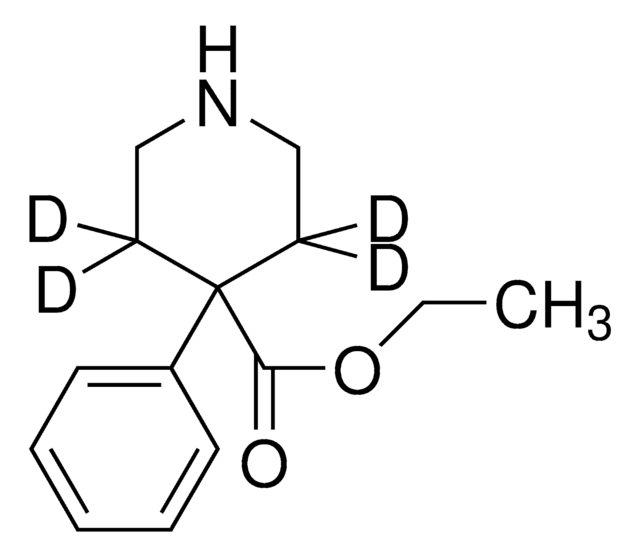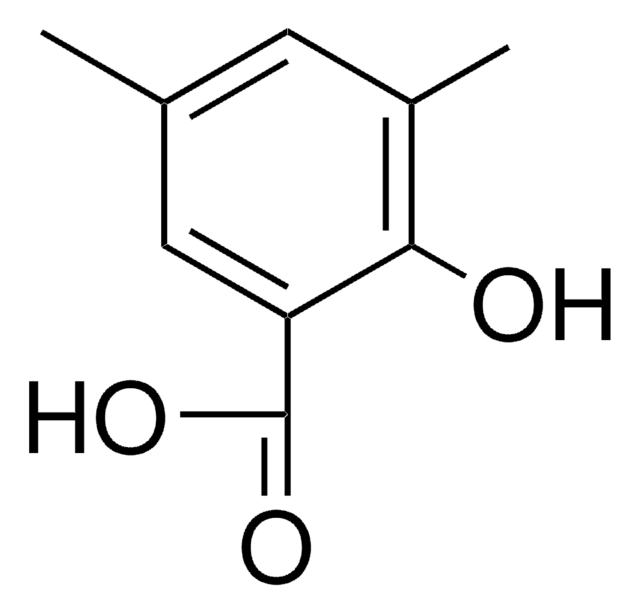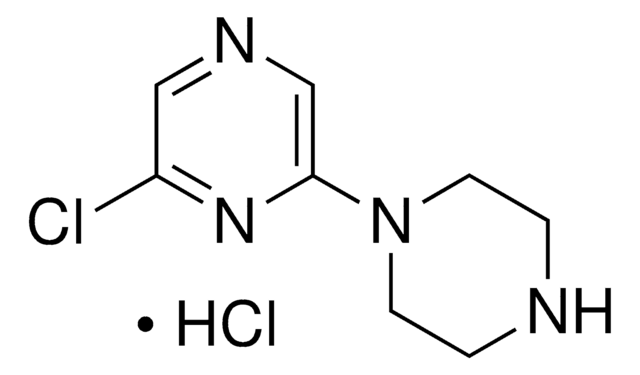M-144
MDAI hydrochloride solution
100 μg/mL in acetonitrile: water (9:1) with 5% 1 M HCl (as free base), ampule of 1 mL, certified reference material, Cerilliant®
About This Item
Produits recommandés
Qualité
certified reference material
Forme
liquid
Caractéristiques
Snap-N-Spike®/Snap-N-Shoot®
Conditionnement
ampule of 1 mL
Fabricant/nom de marque
Cerilliant®
drug control
Narcotic Licence Schedule E (Switzerland)
Concentration
100 μg/mL in acetonitrile: water (9:1) with 5% 1 M HCl (as free base)
Technique(s)
gas chromatography (GC): suitable
liquid chromatography (LC): suitable
Application(s)
forensics and toxicology
Format
single component solution
Température de stockage
−70°C
Chaîne SMILES
Cl.NC1Cc2cc3OCOc3cc2C1
InChI
1S/C10H11NO2.ClH/c11-8-1-6-3-9-10(13-5-12-9)4-7(6)2-8;/h3-4,8H,1-2,5,11H2;1H
Clé InChI
DEZYWEZDXRXACY-UHFFFAOYSA-N
Description générale
Informations légales
Produit(s) apparenté(s)
Mention d'avertissement
Danger
Mentions de danger
Classification des risques
Acute Tox. 4 Dermal - Acute Tox. 4 Inhalation - Acute Tox. 4 Oral - Eye Irrit. 2 - Flam. Liq. 2
Code de la classe de stockage
3 - Flammable liquids
Classe de danger pour l'eau (WGK)
WGK 2
Point d'éclair (°F)
55.4 °F - closed cup
Point d'éclair (°C)
13 °C - closed cup
Certificats d'analyse (COA)
Recherchez un Certificats d'analyse (COA) en saisissant le numéro de lot du produit. Les numéros de lot figurent sur l'étiquette du produit après les mots "Lot" ou "Batch".
Déjà en possession de ce produit ?
Retrouvez la documentation relative aux produits que vous avez récemment achetés dans la Bibliothèque de documents.
Notre équipe de scientifiques dispose d'une expérience dans tous les secteurs de la recherche, notamment en sciences de la vie, science des matériaux, synthèse chimique, chromatographie, analyse et dans de nombreux autres domaines..
Contacter notre Service technique










